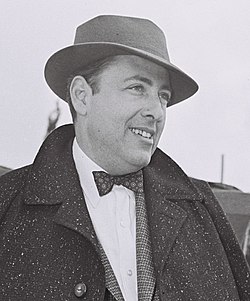Herman Wouk Quote
Willie experienced the strange sensations of the first days of a new captain: a shrinking of his personal identiy, and a stretching out of his nerve ends to all the spaces and machinery of the ship. He was less free than before. He developed the apprehensive listening ears of a young mother; the ears listened on in his sleep; he never quite slept, not the way he had before.
Herman Wouk
Willie experienced the strange sensations of the first days of a new captain: a shrinking of his personal identiy, and a stretching out of his nerve ends to all the spaces and machinery of the ship. He was less free than before. He developed the apprehensive listening ears of a young mother; the ears listened on in his sleep; he never quite slept, not the way he had before.
Related Quotes
About Herman Wouk
Herman Wouk ( WOHK; May 27, 1915 – May 17, 2019) was an American author. He published fifteen novels, many of them historical fiction such as The Caine Mutiny (1951), for which he won the Pulitzer Prize in fiction.
Other well-known works included The Winds of War and War and Remembrance (historical novels about World War II), the bildungsroman Marjorie Morningstar; and non-fiction such as This Is My God, an explanation of Judaism from a Modern Orthodox perspective, written for Jewish and non-Jewish readers. His books have been translated into 27 languages.
The Washington Post described Wouk, who cherished his privacy, as "the reclusive dean of American historical novelists". Historians, novelists, publishers, and critics who gathered at the Library of Congress in 1995 to mark his 80th birthday described him as an American Tolstoy. Wouk lived to 103.
Wouk was a member of the executive committee of the Writers and Artists for Peace in the Middle East, a pro-Israel group.
Other well-known works included The Winds of War and War and Remembrance (historical novels about World War II), the bildungsroman Marjorie Morningstar; and non-fiction such as This Is My God, an explanation of Judaism from a Modern Orthodox perspective, written for Jewish and non-Jewish readers. His books have been translated into 27 languages.
The Washington Post described Wouk, who cherished his privacy, as "the reclusive dean of American historical novelists". Historians, novelists, publishers, and critics who gathered at the Library of Congress in 1995 to mark his 80th birthday described him as an American Tolstoy. Wouk lived to 103.
Wouk was a member of the executive committee of the Writers and Artists for Peace in the Middle East, a pro-Israel group.
